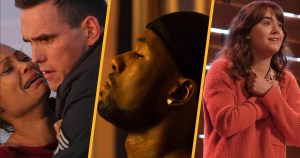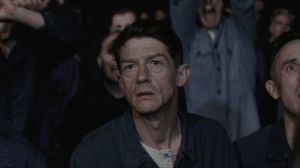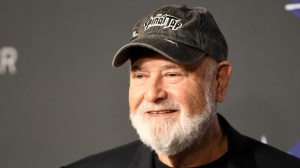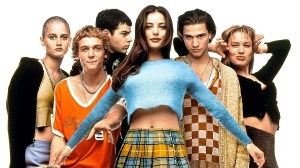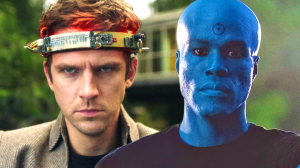The truth is that the Oscars are always in a different phase: one year it’s pure controversy, the next it’s full-on nostalgia, right? But some Best Picture winners are simply beyond debate. We’re talking about the kind of films that didn’t just take home the gold statue, but redefined what real cinema means. These are the movies that shaped genres, created icons, and still influence filmmakers and audiences decades later. From emotional blockbusters to heavy dramas, Hollywood’s biggest night has delivered plenty of unforgettable winners — proof that the Oscars can still get it right when they hit the mark. So, have you ever wondered which ones stand above the rest?
Videos by ComicBook.com
Sure, picking just a few is almost unfair when there have been hundreds since the ceremony debuted in 1929. Still, it’s not impossible, and there’s a reason behind every choice here. These are the 10 best Oscar-winning movies of all time, ranked.
10) Titanic
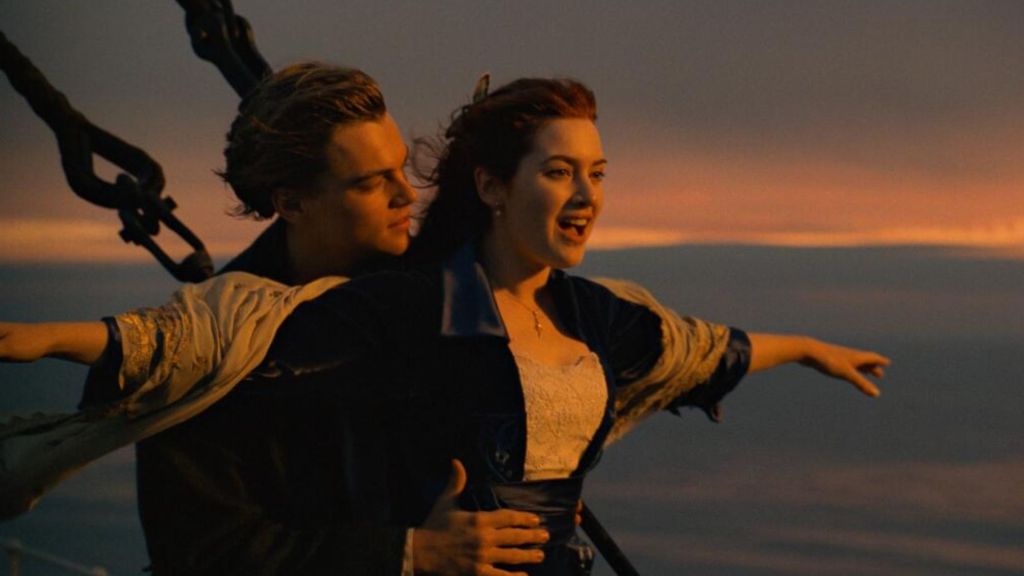
Titanic is that kind of movie you can say you’ve seen ten times, and still end up watching again. James Cameron took an unlikely romance set against a real-life tragedy and turned it into a generational phenomenon. The story of Jack (Leonardo DiCaprio) and Rose (Kate Winslet) aboard the doomed ship is simple, even straightforward, but it works because Cameron knew exactly how to balance emotion and spectacle. The movie is huge, unapologetically melodramatic, and completely aware of it — which is exactly why it’s still irresistible decades later.
Sure, some lines haven’t aged well, and subtlety wasn’t really the priority here, but the impact was undeniable. Even now, you catch yourself watching and suddenly tearing up in front of the screen. Titanic redefined what winning Best Picture could mean: a blockbuster that’s both a technical showcase and a deeply emotional experience. Winning 11 Oscars cemented its legacy as one of Hollywood’s biggest triumphs. The only reason it lands this low on the list is its less sophisticated script compared to the heavyweights that follow.
9) One Flew Over the Cuckoo’s Nest
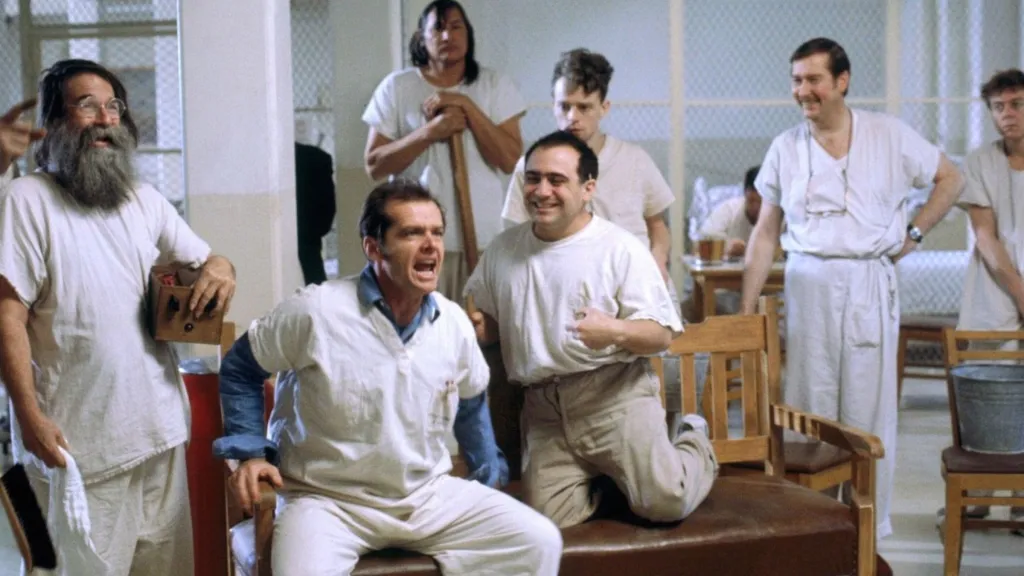
Based on Ken Kesey’s novel, One Flew Over the Cuckoo’s Nest brings the rebellious spirit of the ’70s straight into a mental institution. The story follows R.P. McMurphy (Jack Nicholson), a man who pretends to be insane to dodge prison time and ends up clashing with the cold, authoritarian Nurse Ratched (Louise Fletcher), who is one of the greatest villains in movie history. It’s a brutal showdown between freedom and control, and the film never tries to soften that message. Nicholson is in peak form here, unpredictable and magnetic, delivering one of those performances that remind you why he’s a legend.
What keeps One Flew Over the Cuckoo’s Nest relevant today is how perfectly it balances humor, critique, and heartbreak. It has the energy of a protest film but the soul of a deeply human drama. Decades later, the chemistry between Nicholson and Louise Fletcher remains electrifying. Back in its time, it swept the “Big Five” Oscars, and it’s easy to see why. It’s a movie that completely understands what it means to fight the system. The only reason it ranks a bit lower here is its more traditional structure compared to some other bolder films.
8) Gone with the Wind
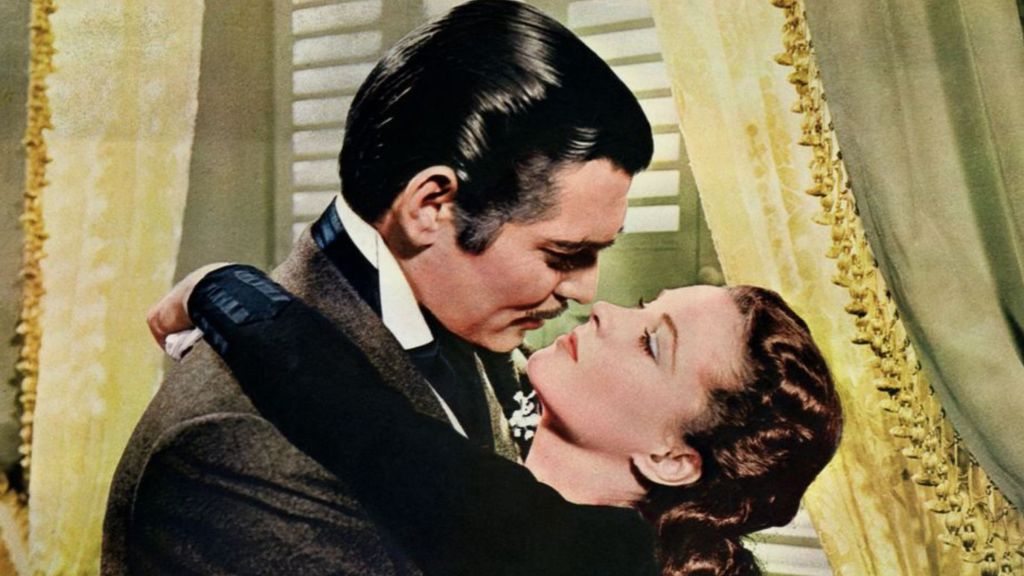
You’ve definitely heard of Gone with the Wind, even if you’ve never actually sat through it — and there’s a reason for that. It’s basically the definition of a Hollywood epic. The story follows Scarlett O’Hara (Vivien Leigh), a fiercely determined woman trying to hold on to her life and status during the American Civil War. In the middle of it all, she gets tangled in complicated relationships with Ashley Wilkes (Leslie Howard) and Rhett Butler (Clark Gable). We’re talking about nearly four hours of drama, war, romance, and chaos — all shot in dazzling Technicolor and crafted with a sense of spectacle no one else could match in the ’30s.
Of course, watching it today is a different experience. The film’s romanticized view of the American South and its stereotypical portrayal of Black characters haven’t aged well, but from a filmmaking perspective, Gone with the Wind is monumental. It defined how Hollywood approaches large-scale storytelling and “Oscar bait” productions for decades. Simply put, you can’t fully understand the Academy Awards without acknowledging the shadow this film still casts.
7) Lawrence of Arabia
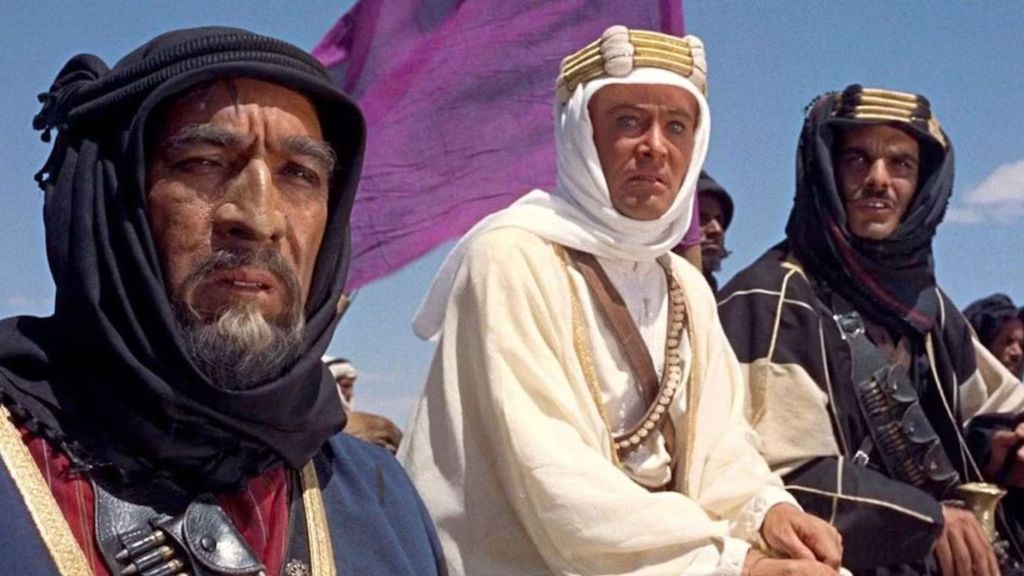
Some movies age, and then there’s Lawrence of Arabia. Not everyone has seen it, but it’s basically a masterclass in directing. Based on the true story of British officer T.E. Lawrence, the film follows his involvement in the Arab Revolt during World War I. What really drives it, though, isn’t the politics or the battles — it’s Lawrence (Peter O’Toole) himself, torn between his ideals and his ego. The film’s influence is still massive: directors like Steven Spielberg, Martin Scorsese, and George Lucas have all cited it as a blueprint for how to shoot scale, landscape, and the psychology of a lone hero.
Visually, it’s on another level. No other Best Picture winner makes the desert look both so endless and so suffocating (not even Dune, for all its praise). Lawrence of Arabia isn’t just a war film or an adventure epic; it’s about a man caught between worlds, and that conflict still hits hard today. Sure, the pacing can feel slow and some portrayals haven’t aged well, but its precision and ambition make it the kind of Oscar winner that defines what epic filmmaking really means.
6) The Silence of the Lambs

The infamous cannibal Hannibal Lecter (Anthony Hopkins) became one of fiction’s most iconic characters thanks to The Silence of the Lambs. It’s worth noting that the Oscars almost never embrace horror, which makes this win even more impressive — the movie turned the genre into pure prestige cinema. The story follows FBI trainee Clarice Starling (Jodie Foster) as she hunts a serial killer with help from another: the brilliant yet terrifying Lecter. It’s tense, elegant, and deeply unsettling, managing to balance psychological depth with the dread of a horror classic.
The film also joined the rare club of sweeping the “Big Five” Oscars, proving that a sharp thriller can stand toe-to-toe with any historical drama. Hopkins and Foster are both in peak form, and their scenes together practically hum with electricity. The real genius, though, is in the restraint: The Silence of the Lambs is scary because it understands psychology, not because it relies on jump scares. Its legacy only grew with later adaptations; no wonder the Hannibal series exists. It ranks here mainly because it’s smaller in scale.
5) The Lord of the Rings: The Return of the King

In the world of fantasy, both on cinema and in literature, J. R. R. Tolkien’s The Lord of the Rings saga basically reigns supreme. But it was with the third film, The Lord of the Rings: The Return of the King, that the very definition of “payoff” was set in stone. After two flawless entries, Peter Jackson delivered an ending so epic that audiences simply weren’t ready for it (long before Avengers: Endgame, there was already a massive cinematic event). In the story, Frodo (Elijah Wood) and Sam (Sean Astin) reach their physical and emotional limits as they try to destroy the One Ring, while everything around them erupts in battles, farewells, and redemption arcs. It’s fantasy at its most majestic.
For context, just like Titanic, the film won 11 Oscars — and didn’t lose a single category it was nominated for. That says it all. In the end, The Return of the King isn’t just the conclusion of a story; it’s proof that blockbuster cinema can be art too. Even with its long runtime and the fact that most people remember it as part of a trilogy rather than a standalone film, it still wins where it matters most: genuine emotion, massive scale, and that rare feeling that you’ve just witnessed something legendary.
4) The Godfather: Part II
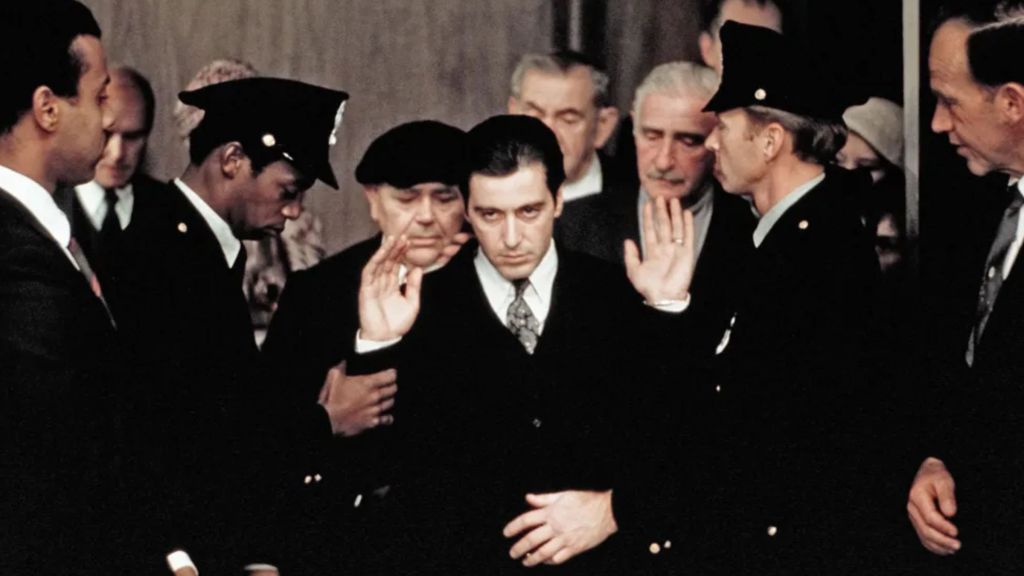
Making a sequel to what’s often called the greatest movie of all time sounds like a suicide mission — after all, plenty of great films have tried and failed to live up to their originals. But The Godfather: Part II pulled off the impossible. Francis Ford Coppola delivered something darker, more introspective, and in many ways, more brutal. On one side, we see young Vito Corleone (Robert De Niro) building an empire. On the other hand, Michael Corleone (Al Pacino) is slowly tearing it down, consumed by power and guilt.
The result is a stunning study of legacy and decay. The Godfather: Part II proves that sometimes success itself is the real tragedy. Its pacing is deliberate, its tone icy, but everything serves a purpose. It won the Oscar because it did what no sequel had ever achieved: it expanded a crime saga into something deeper and grander, turning it into a Shakespearean family tragedy. The only reason it doesn’t crack the top three is simple: it just doesn’t carry the same symbolic weight as the original.
3) Casablanca
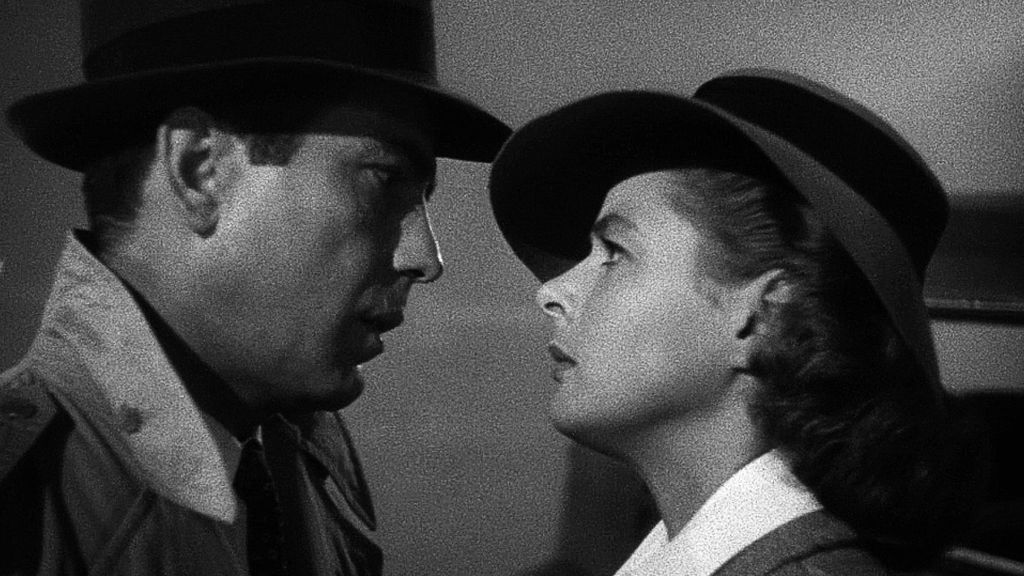
Another totally unforgettable film, and one you don’t even have to watch to know it’s a classic, is Casablanca. It’s untouchable, no matter how much time passes. The story follows Rick (Humphrey Bogart), the owner of a bar in occupied Morocco during World War II, who unexpectedly reunites with his lost love. It’s a simple story, but incredibly effective. The film balances romance, politics, and cynicism with a natural ease that modern cinema still tries (and often fails) to match.
Casablanca works because everything feels effortless, even though it’s meticulously crafted. The script is sharp, the dialogue razor-edged, and the performances are magnetic. By the time it ends, it feels as if Hollywood itself learned what it means to tell a story with both heart and intelligence. The Oscar wasn’t just deserved — it was symbolic, representing the peak of an era when Hollywood believed elegance and entertainment could go hand in hand. Today, that’s rare; the film remains perfect both narratively and emotionally, even if it’s less visually ambitious than some of its successors.
2) Schindler’s List
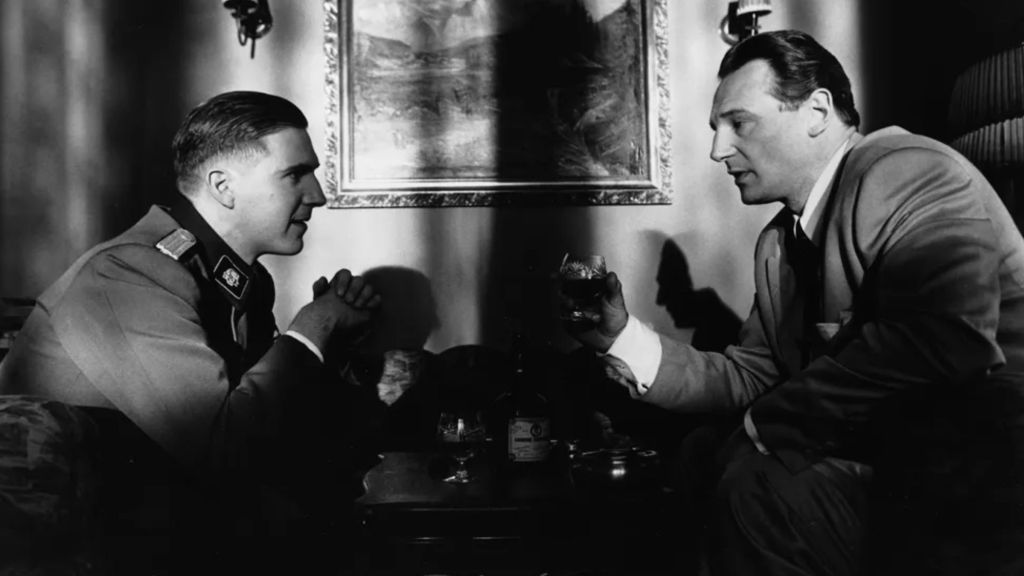
Spielberg’s films are always next-level, but with Schindler’s List, he went to a whole other plane. Here, the director was at his most serious and human, adapting Thomas Keneally’s story about Oskar Schindler (Liam Neeson), a German businessman who ended up saving over a thousand Jews during the Holocaust. The filmmaker chose to shoot everything in black and white — not for style, but as memory and a mark of respect, making it feel like we’re witnessing real records of a collective trauma. His direction is restrained yet powerful, avoiding cheap sentimentality and letting the horror speak for itself.
This is another film that redefines what it means to win an Oscar: not for prestige, but for significance. Schindler’s List is painful to watch and impossible to forget, a representation of reality at its most harrowing. Its importance goes beyond Best Picture; it’s a constant reminder that Hollywood can do more than entertain — it can preserve what humanity cannot afford to forget. This is the kind of Oscar-winning movie that proves cinema can be art, a document, and a wound all at once.
1) The Godfather
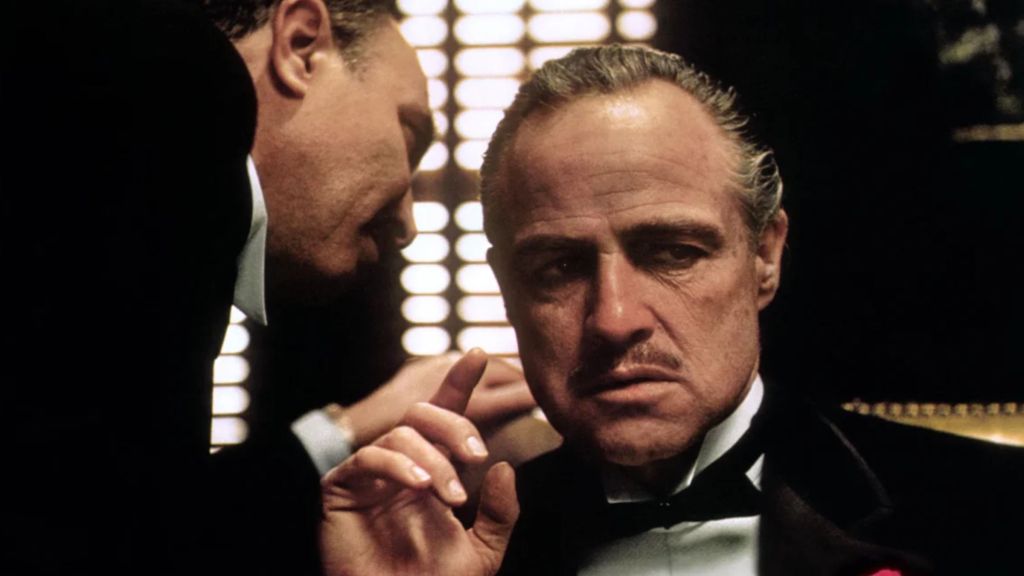
The number one spot could only go to The Godfather. No other Oscar winner is as indisputable, and its legacy still serves as a benchmark and inspiration — so much so that talking about it almost feels like a rite of passage from parent to child. Coppola turned a story about a mafia family into a timeless portrait of power, loyalty, and corruption. The film follows Michael Corleone taking over from his father, Vito (Marlon Brando), becoming the very monster he once vowed not to be. It’s the journey of a man who thinks he’s saving his family, only to doom it instead.
Everything in The Godfather is precise: direction, pacing, cinematography, score, and performances. There’s no excess, just accuracy. Brando and Pacino aren’t merely acting; they’re creating archetypes. This film shaped generations of filmmakers and, without exaggeration, redefined what the Oscars should reward. It’s impossible to imagine a list like this with any other film at the top — because, ultimately, every great movie since has been trying to be The Godfather. It leads the pack by setting the ultimate standard in directing, writing, and acting.
Have you seen any of these movies? Which one’s your favorite? Let us know in the comments!

